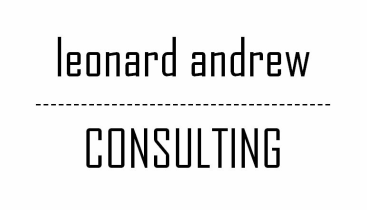It's a question that we often hear this time of year as school starts back up again, and students - even though only just starting their third year of high school - begin looking to what comes next.
0 Comments
Have you ever been excited to start a project, and then you lost momentum half-way through?
Do you sometimes feel overwhelmed by how much work needs to get done? Do you find yourself procrastinating? If so, you're not alone. This happens to pretty much everyone. With the school year - and then the college application for high school juniors and seniors - just around the corner, it's easy to feel motivated in the beginning of the process and then cave in to your limiting inner dialogue: I don't feel like filling out that application today. Do you think I can skip the college fair? I have HOW MANY essays to write!? If you're in the last leg of the college application process, and you want to stay steady toward the finish line instead of trailing off, you'll want to pay close attention to your mindset. I'm a mindset and writing strategy coach for college applicants, and I discovered that applicants who developed and maintained focused, positive attitudes during the application process were more likely to get into their top choice schools. Why? They wrote better essays, they performed better in school, and they were able to focus and send in their best work. I want to share five of the most effective mindset strategies you can start using now. They will help you stay on top of your game during the college application process, and they will help you navigate past the times you lose momentum, feel overwhelmed, or find yourself procrastinating. 1) Set an Intention In your ideal world, how do you want the college application process to go for you? Do you want it to be stressful, overwhelming, and frustrating? Or, do you want it to be easy and enjoyable? That might seem like an obvious choice, but most applicants don't choose how they want the application to process to be for them. They listen to others talk about how hard and time consuming the application process is, or they observe their friends vent about how much pressure they're under, and then they believe that's just how it is. Take a moment right now to consider how you want to feel during the application process. Set that as your intention. "I want to feel [insert positive emotion here] as I apply to college." Setting an intention guides you to direct your focus, and your focus creates your experience. Think about it. Your brain has millions of bits of information it can focus on in any given moment. Your mind is deleting most of those pieces of information, and it is aware of the few pieces that it's focused on. Try this: Notice the pace of your breathing. Now, notice how your clothes feel on your body. It's likely you weren't focused on how fast you're breathing or how your clothes feel on your skin until you read this sentence. What changed? I redirected your focus. In the same way, you can look around right now and locate a few things you don't really like or you can look for a few things that bring you joy. What you see is directly related to what you're looking for. With this in mind, begin to draw attention to how you're presenting the college application process to yourself. Here are a few strategies:
2) Visualize Do you know what worry is? It's you imagining possible "worst-case" scenarios in your head. Then, your body responds to those scenarios as though they're real. It's you using your imagination. However, it's you using your imagination in a way that's disempowering. Your subconscious mind doesn't know the difference between a perceived threat and a real one; that's why many people experience anxiety. Their body goes into fight-or-flight mode over the perceived threat in their mind. You can also use your imagination to create possible scenarios of thing going right. This is called visualization. It's what the top athletes in the world use to help them win: they spend time imagining themselves winning, scoring a goal, or landing the shot. In short, visualization is creating a mental image of a future event. Why is visualization so powerful? Visualization causes your brain to create neural pathways or "road maps" in your mind as though you've already completed the action you're visualizing. So, just like your brain can't tell the difference between an imagined threat or a real one, your brain can't tell the difference between an imagined experience or a real one. Use this to your advantage! Here are some ways to use visualization:
3) Get Organized The college application process takes planning since it's often in addition to your regular school work and activities. Get a calendar, and put it in a place you'll see every day or make it a habit to check it. Plan to have a lot of tasks to complete, forms to fill out, conversations to have, and remember that being busy does not mean you need to be stressed. Get yourself organized, and set an intention that you'll stay organized and focused throughout the process. You can even write your intention in your calendar as a daily reminder. So, what's the benefit of organizing your time? Organization is good for the mind. Being organized can reduce stress and improve your productivity, which both come in handy when you're doing something as important as applying to college. Once you get into the habit of sticking to your calendar, you'll find yourself procrastinating less and it will help you to gain momentum. Here are some ways to get yourself organized:
4) Start with the End in Mind One of the strategies teachers learn when they study teaching is a concept called "backwards planning." This is how it works: when teachers start planning lessons, they think of what they want their students to know or be able to do at the end of the lesson or unit, then they figure out the steps that will help them achieve that result. They start with the end in mind. I use this method when I coach applicants writing their college essays. I ask them to get clear on their end result, or what they wanted admissions officers reading their essay to take away from it. This prevents them from writing pieces that don't have a point or a direction. This shift in your thinking can make a world of difference. Keep your end goal in mind so you don't waste time completing unnecessary tasks that will leave you frustrated. If you're having a difficult time figuring out your topic or angle, use this method.
5) Take Inspired Action Did you ever notice that your brilliant ideas come to you while you're in the shower or right before you're about to fall asleep? There's a reason for that. At those moments, you're not resistant. You're a little more relaxed. In this state of mind, ideas can flow to you easily. This tip will help you tremendously with your college essays. Here's what to do when you get a stroke of genius:
Also, listen to your gut instincts. If a college essay topic doesn't feel right to you, or if you got a weird vibe while visiting a particular campus, listen to that. It's the equivalent of inspired action. Make your mindset an important piece of the application process, and set yourself up for success! Happy Writing! This blog was written by Jaclyn Corley, Founder of The College Essay Captain and digital course creator of College Essay Playbook. The College Essay Captain helps teens overcome their fears and limiting beliefs around writing college application essays, so they are free to authentically share their stories with admissions teams. You can connect with Jaclyn by clicking here. How are soon-to-be college freshman preparing for college? We asked a few students (that either did, or did not, work with us) and we received some great responses! With answers like this, from A.B. in Massachusetts, we know that a number of students are thinking and feeling the same way, and can apply some of her thought-process in approach in their own road to higher education.
1. What are you doing to prepare for college? It’s mostly getting into the mindset that I can do it. I’ve had friends and family sending me tons of stuff about where to go and what I'll need to best be prepared. I’ve watched my brother go through it, and I have my experiences from high school. 2. What are some of your strengths and weaknesses as a student and how do you see them manifesting in a college setting? A strength of mine is my relentless ability to not give up until I've tried everything. I’m able to finish my work, no matter what, and know that it will help me in the long run. My strength is also my perseverance during new experiences, which college will obviously be. My biggest weakness is not asking for help, or asking for help too late. I know I have a problem with grammar and getting my point across, and that might come into play with writing papers in college and not being understood. I knew I needed a smaller college environment to thrive as well as a place that offered one-on-one support. My education was my top priority in my college application process. 3. What have you done/what will you do to prepare for college that has differed from your peers? In what ways do you think this will influence your transition to college life? I'm fortunate because I have been surrounded by different groups of people and learned to be independent. I do not take things for granted. I think the biggest thing is that I accepted that whatever path I end up on is going to be okay, I just have to make the most of it. Whatever happens is going to teach me something and I'll learn from it. 4. Describe your experience applying for college. What did you find helpful? What did you wish you had known going into the process? My experience was a whirlwind. I started mid-junior year, and looked into different schools with my high school guidance counselor. I started with schools that offered riding (horseback) and that was my focal point. My mom was sitting the corner of the room shaking her head and gave me an area to stay in. I toured Mount Holyoke, UMass—and learned what would not work for me— Simmons, and Skidmore. The actual application process was not hard for me. The hardest part was deciding on schools to apply to and then writing the essay. I was concerned that I wasn't writing something that the schools were looking for. I used the Common App and in the end only applied to three schools as I ended up doing Early Decision to Mount Holyoke. That acceptance, of course, shortened my college application process. I'm so happy to be going where I am, but I do wish I had started the process early to learn about more schools and narrow down my search. I could have even worked with the team at LAC! As I know you do with students, I wish I had spoken with more current students at schools to get a better sense of the community and see how the campus functions. That way, I could have gotten a feel for if I fit in. 5. What influenced your decision to commit to your particular college? A lot of things. Location was a big one. My brother ended up in Minnesota, and flights are expensive, so we only see him about three times a year on holidays. My parents told me that they hoped I'd stay within a five-hour car ride. Money was another big one, but I certainly wanted good access to resources like professors and support services. There’s a career center and writing center, at Mount Holyoke which i plan on using. The campus there also feels like home. There is a diverse community, similar to my high school. I could see myself on campus as an applicant, while I felt like a fish out of water at other schools. In addition, my interests don't fall into a specific major, and Mount Holyoke also allows you to design your own major and take classes at any of the schools in the five college consortium. 6. How has being an athlete influenced you as a student? How might your goals as an athlete stay the same, and how might they differ transitioning from high school to college? I think it has made it harder, but I'm up to the challenge. Time management has been a big thing with swim practices that start early or meets that go late. It is still a huge weakness. I do procrastinate, but push myself because my studies come first -- I'm working to be more organized and to not procrastinate any more. I have high expectations of myself, and my parents have high expectations of me too. I think my athletic goals will be more team-based in college. I am going to continue to push myself, and gain confidence in my abilities, and find my happy place in the sport. 7. What are your expectations of college life? What do you consider successes and failures of your college application process? More freedom, not having my parents looking directly over my shoulder -- ha, though they'll still be looking. I want to find students from different backgrounds to become friends with. I will rely more on myself and be more confident. As far as successes, I finished my applications on time after I had narrowed down my college search. I know that I should have started the college application process a lot sooner and didn't see enough schools. I know that working with LAC would have had my more than comfortable and prepared. I did it, and I'm happy, but I know the road could have been smoother. I'm nervous and excited for my next steps! How can Leonard Andrew Consulting help you? Interview prep? Essay guidance? Get in touch today by clicking here. |
Chad Dorman
LAC - Founder/Director Jaclyn CorleyFounder - The College Essay Captain, and featured guest blogger here for LAC. It's her mission to inspire people to tell empowering stories. Archives
June 2024
Categories |



 RSS Feed
RSS Feed